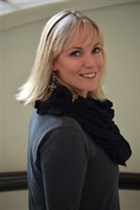
Top stories


ESG & Sustainability#BudgetSpeech2026: SRD grant unchanged, other Sassa social grants see hike
8 hours




More news











ESG & Sustainability
South Africa’s carbon tax should stay: climate scientists explain why









But in saying this, genetic studies suggest that genes can determine a 10% variability in creative potential, so there is of room for development. In short, creativity can be nurtured - but only with interventions over a sustained period of time -here are some factors to consider:
It is important that when coaching for creativity to provide feedback, many people think they are more creative than they really are and this will be especially needed when an individual is narcissistic. Feedback is essential to help close the gap between confidence and competence, and it is proven that employees who seek feedback perform more creatively, and on the flip side, those who ignore feedback end up being creative in their own minds.
Consider incubators, they are so effective because they disengage individuals from their everyday activities and force them to pay attention to other issues, push people to see things from different perspectives, and so on.
Use exercises to enhance creative performance. For example, teaching employees to identify innovative ideas, take on challenges, recalling insight out of their area of expertise, or combing unrelated items/ideas can all boost creativity.
Even small changes in your routine can have a positive impact on creative output - try taking a different route to work, or picking up on new hobby.
Carl Jung said: "The creative mind plays with the object it loves" and one of the best methods for enhancing creative performance is to increase individuals' intrinsic motivation (task-related enjoyment, interest, and involvement). Studies have confirmed that assigning people to projects they love unleashes their creative potential.
Many believe that knowledge interferes with creativity, but it is virtually impossible to come up with ideas that are completely original, which is why Einstein said, "the secret to creativity is knowing how to hide your sources." On the other hand, without expertise or relevant skills, you cannot produce anything creative. If you don't know how to play the piano, you'll never be able to improvise; if you can't code, you won't be able to develop an original app. This is why a higher level of expertise, in an area an employee is passionate about, will increase creativity in that area.
Creativity is mostly a team effort and collaboration, which is why leadership is a key driver of creativity. Here are three ways leadership can boost teams' creative output:
2. Avoid having too many "creatives": although critical to any creative team, their ideas will only be implemented if the team includes people who can execute, think practically, pay attention to detail, and help transform ideas into reality. Don't assume that 'less creative' employees cannot make a valuable contribution to creative output.
3. Embrace failure: This is a cliché, but it's true. If you are not prepared to embrace failure, you will never encourage your employees to do anything creative. Too many say they embrace creativity, but don't do what it takes to promote it, driving employees to achieve "less with more" and only happy to support creative ideas only if they are guaranteed to work.That's the WHAT and WHY. For the HOW, contact az.oc.hcaoceciffoeht@ofni.
